
Six members of the King’s Department of Comparative Literature have pulled together a reading list of books that have been inspiring them during lockdown.
1. Rosa Mucignat, Senior Lecturer in Comparative Literature

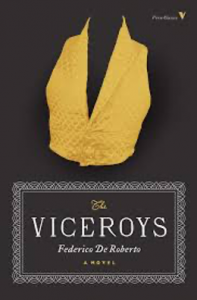
Not really an uplifting novel, but I have been reading Federico De Roberto, The Viceroys (1894). It tells the story of three generations of the Uzeda, a family of Sicilian aristocrats who trace their bloodline back to the Spanish viceroys that ruled Sicily in the fifteenth century. They are the ultimate 1 percent: convinced that wealth and prestige are their birthright, greedy to the point of obsession, they stop at nothing to preserve their privileges. Stretching the limits of verismo, as Italian realism or naturalism was called, De Roberto paints a strange and fascinating picture of the Uzeda as monsters, not only because of their repellent actions, but also because of the hereditary diseases brought about by centuries of in-breeding. But times are changing: Italy’s transition to modernity, the Risorgimento, reaches Sicily, and the Uzeda look a species destined to extinction. That is, until the young prince Consalvo decides to stand in the country’s first parliamentary election…
2. Anna Bernard, Senior Lecturer in English and Comparative Literature

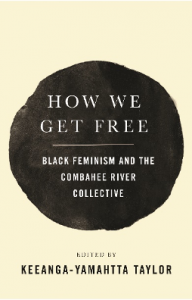
I have been reading Keeanga-Yamahtta Taylor’s How We Get Free: Black Feminism and the Combahee River Collective as part of my research on the cultural history of international solidarity movements. The Combahee River Collective were a group of black feminists in the 1970s who are best known for their rousing manifesto on their intersecting experiences of oppression as black queer women and their strategies for building a genuinely radical feminist movement. Taylor brings together essays, interviews, and her own moving writing on the importance of these activists’ ideas today. It’s especially inspiring and thought-provoking to read something like this at a time when traditional forms of political activism – demonstrations, reading groups, teach-ins – can’t be done in person, and we need to come up with more effective and inclusive ways of bringing people together online.
3. Sebastian Matzner, Senior Lecturer in Comparative Literature. Director of Queer@King’s.

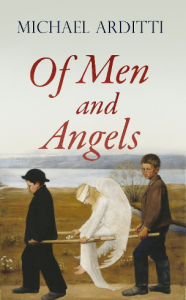
The biblical story of Sodom and Gomorrah occupies a central – and troublesome – place in the history of male-male desire in the West. Oscar Wilde was sentenced to two years of hard labour for ‘posing as a Sodomite’, and ‘sodomy’ was (and often still is) the charge in many law codes that prohibit and fiercely punish love between men around the world. Michael Arditti’s novel, Of Men and Angels (Arcadia Books, London, 2018), explores the echoes and resonances of this story through the ages, tracing its presences and transformations from its codification in ancient Babylon via medieval York and Renaissance Florence to nineteenth-century Palestine and modern-day Los Angeles. This is a true romp through history (if you pardon the pun) that imaginatively revisits how this tale acquired and changed its shape and meaning as it travelled through time and around the globe, including its refractions in Judaism, Christianity, and Islam, and under the conditions of colonialism. If you like historical novels, this one is five of them rolled into one! To make it a feast for students of literature, Arditti adjusts his writing style according to each period and setting as every section starts with a version of the Sodom story as told in that particular time – and then the chapters subsequently unfold how the version of the story in the very form you just read came to be written. The result is a really multifaceted and engrossing engagement with something that turns out to be anything but “always that same old story”.
4. Sara Marzagora, Lecturer in Comparative Literature

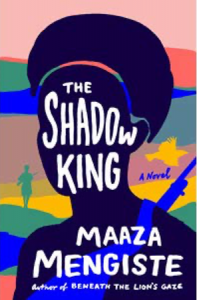
I have finally received my copy of Maaza Mengiste’s much-awaited second novel The Shadow King (2019). Maaza Mengiste, who was born in Addis Ababa, narrates the history of the Italian occupation of Ethiopia (1936-1941) from the – complex, often contradictory – perspective of those Ethiopians who fought against the fascist invaders. The armed resistance against Benito Mussolini’s forces is celebrated every year in Ethiopia during Patriots’ Day (5th of May), but the stories of women fighters have not yet received adequate recognition in either history or public memory. Starting off from a meticulous historical research, Maaza Mengiste brings back the pivotal role of women in the resistance. She does so through the characters of Hirut and Aster, the former a maid in the household of the latter, before they both set off for the war front. This is a novel, in my reading, that poses fundamental political questions about the intersectional nature of oppression and liberation. Maaza Mengiste ponders about the relationship between the anticolonial struggle, women’s liberation, and class emancipation, showing the friction, but also the potential synergies, between these projects. And her call to always fight against various forms of fascism is as relevant as ever, at a time when a growing section of world leaders are publicly condemning antifascist values.
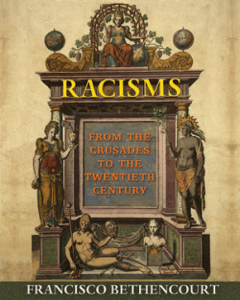
5. Professor Ziad Elmarsafy, Professor of Comparative Literature
I am making my way through a wonderful book by Francesco Bethencourt (Charles Boxer Professor of History at King’s): Racisms: From the Crusades to the Twentieth Century (Princeton University Press, 2013). An ambitious, erudite, and readable history of racisms throughout world history, Racisms persuasively demonstrates the perpetual link between political and economic projects on one hand, and the development of discrimination based on colour and ethnicity, variously defined, on the other. Of particular interest is Bethencourt’s intelligent reading of the racially charged iconographies that surround us. This book is really very good to think with right now given the ubiquity of contemporary racist discourses and emergencies, not least the atrocious murder of George Floyd in Minneapolis on 25/5/2020.
6. Javed Majeed, Professor of English and Comparative Literature

One of the effects of devolution in the UK today on the study of the British empire has been a concentration on the distinctively Scottish, Irish, and Welsh contributions to empire. An instructive book on the Scots and empire is T.M. Devine’s Scotland’s Empire 1600-1815 (2003).
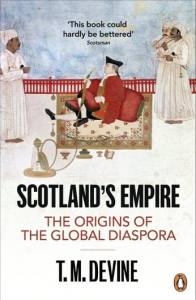
It shows how important the Scots were as emigrants, doctors, missionaries, merchants, and educationalists throughout the British empire, from the white settler colonies to India and Africa. It has some intriguing and prescient chapters on different axes of Scottish identity and on how the empire transformed Scotland. It also gave me a broad framework in which to place two of the figures I am working on in a book on lexicography and the English language in colonial India, John Richardson (1740/41-1795)and John Gilchrist (1759-1841). Both were Scots who wrote dictionaries on Middle Eastern and Indian languages. Their approaches to the term ‘English’ can be traced in part to their Scottish identities. In more general terms, now that the term “British” is increasingly being contested in the wake of devolution, this is an interesting book to read as historical background to how a united but always somewhat strained Britishness was forged in empire, and how empire played a key role in incorporating Scotland into the union. With decolonisation and then Brexit, that incorporation is under strain, and this book helps us to understand some of the relevant historical processes which have led us to the current situation.
Read More:
For more information on the King’s Department of Comparative Literature, check out their page.
You can also see Giovanna’s Top 5 Favourite Things About Comparative Literature.

Leave a Reply